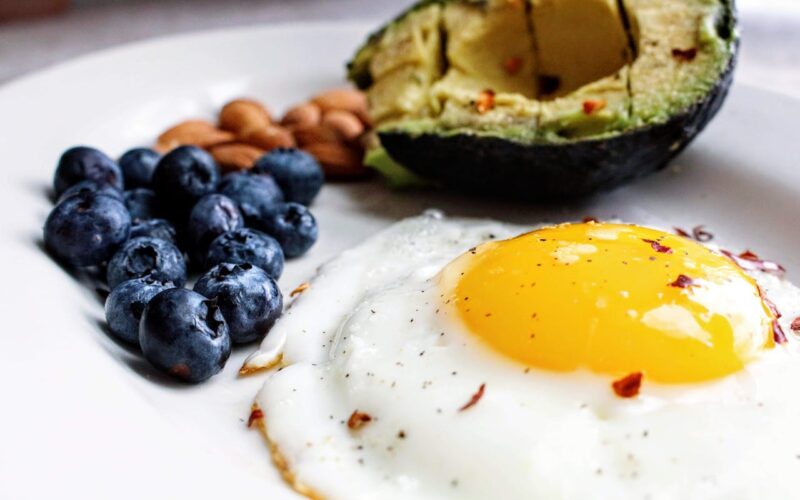Ulcerative colitis (UC) is a chronic inflammatory bowel disease that can cause discomfort, pain, and disruptions to daily life. While medical treatments are essential for managing symptoms, a well-designed ulcerative colitis diet plan can also play a crucial role in alleviating discomfort and supporting overall health. In this comprehensive guide, we’ll delve into the intricacies of crafting an effective ulcerative colitis diet plan, exploring dietary strategies, foods to include and avoid, meal planning tips, and the importance of working with healthcare professionals for personalized guidance.
Understanding Ulcerative Colitis: The Role of Diet in Managing Symptoms
Ulcerative colitis affects the lining of the colon and rectum, leading to inflammation, ulcers, and a range of symptoms such as abdominal pain, diarrhea, fatigue, and unintended weight loss. While diet alone cannot cure UC, certain dietary modifications can help reduce inflammation, ease symptoms, and support overall gut health.
Key Components of an Ulcerative Colitis Diet Plan
- Low-Residue Diet: A low-residue diet minimizes the intake of foods that are high in fiber and difficult to digest, such as raw fruits and vegetables, seeds, nuts, and whole grains. This can help reduce bowel movements, alleviate abdominal pain, and decrease the frequency of flare-ups.
- Low-FODMAP Diet: FODMAPs are fermentable carbohydrates that can trigger symptoms in some people with ulcerative colitis. Following a low-FODMAP diet involves limiting foods high in FODMAPs, such as certain fruits, vegetables, dairy products, and grains, to reduce symptoms like bloating, gas, and diarrhea.
- Anti-Inflammatory Foods: Incorporating foods rich in omega-3 fatty acids, antioxidants, and anti-inflammatory compounds can help reduce inflammation and support gut health. Examples include fatty fish (such as salmon and mackerel), leafy greens, berries, turmeric, ginger, and olive oil.
- Probiotics: Probiotics are beneficial bacteria that can help restore balance to the gut microbiome, potentially reducing inflammation and improving digestive function. Probiotic-rich foods like yogurt, kefir, sauerkraut, and kimchi can be beneficial additions to an ulcerative colitis diet plan.
Foods to Include and Avoid in an Ulcerative Colitis Diet Plan
Foods to Include:
- Cooked fruits and vegetables (peeled and seeded when possible)
- Lean protein sources such as poultry, fish, eggs, and tofu
- White bread, refined pasta, and rice
- Nut butters and smooth nut spreads
- Dairy alternatives like lactose-free milk and yogurt
- Herbal teas and clear broths
Foods to Avoid:
- Raw fruits and vegetables with skins or seeds
- Whole grains and high-fiber cereals
- Spicy foods and foods high in fat
- Dairy products (if lactose intolerant)
- Carbonated beverages and caffeine
- Alcohol and tobacco
Meal Planning Tips for Ulcerative Colitis Diet Success
- Eat Small, Frequent Meals: Eating smaller, more frequent meals throughout the day can help prevent overloading the digestive system and minimize symptoms like bloating and discomfort.
- Keep a Food Diary: Keeping track of your diet and symptoms in a food diary can help identify trigger foods and patterns of symptom exacerbation, allowing for more targeted dietary modifications.
- Stay Hydrated: Adequate hydration is essential for individuals with UC, especially during flare-ups when fluid loss is more significant. Drink plenty of water throughout the day and limit caffeinated and alcoholic beverages, which can exacerbate dehydration.
- Seek Professional Guidance: Work with a registered dietitian or nutritionist who specializes in gastrointestinal health to develop a personalized ulcerative colitis diet plan tailored to your individual needs, preferences, and tolerances.
Navigating Flare-Ups: Adjusting Your Diet Plan
During flare-ups, symptoms of ulcerative colitis can intensify, making dietary management particularly challenging. In these instances, it may be necessary to further modify your diet to minimize discomfort and support healing. Consider incorporating easily digestible foods such as rice, boiled potatoes, and well-cooked lean proteins like chicken or fish. Avoiding trigger foods and irritants like caffeine, alcohol, and spicy foods can also help calm inflammation and reduce symptoms during flare-ups.
Supplementation Strategies for Optimal Nutrition
In some cases, individuals with ulcerative colitis may have difficulty obtaining all necessary nutrients from diet alone, especially during flare-ups or periods of restricted food intake. In such instances, supplementation can be a valuable tool for ensuring optimal nutrition and supporting overall health. Consider consulting with a healthcare professional to determine whether supplementation with vitamins, minerals, or other nutrients such as omega-3 fatty acids or probiotics may be beneficial for your individual needs.
Prebiotics 101: Feeding Your Gut Bacteria
Taking Control of Your Ulcerative Colitis Journey
Crafting an effective ulcerative colitis diet plan requires patience, diligence, and a willingness to experiment with different foods and dietary strategies. By incorporating low-residue, low-FODMAP, and anti-inflammatory foods, while avoiding known trigger foods, you can help reduce inflammation, alleviate symptoms, and support overall gut health. Remember to stay hydrated, keep a food diary, and seek professional guidance from healthcare professionals specializing in gastrointestinal health to optimize your dietary approach. With dedication and informed decision-making, you can unlock relief and take control of your ulcerative colitis journey.


